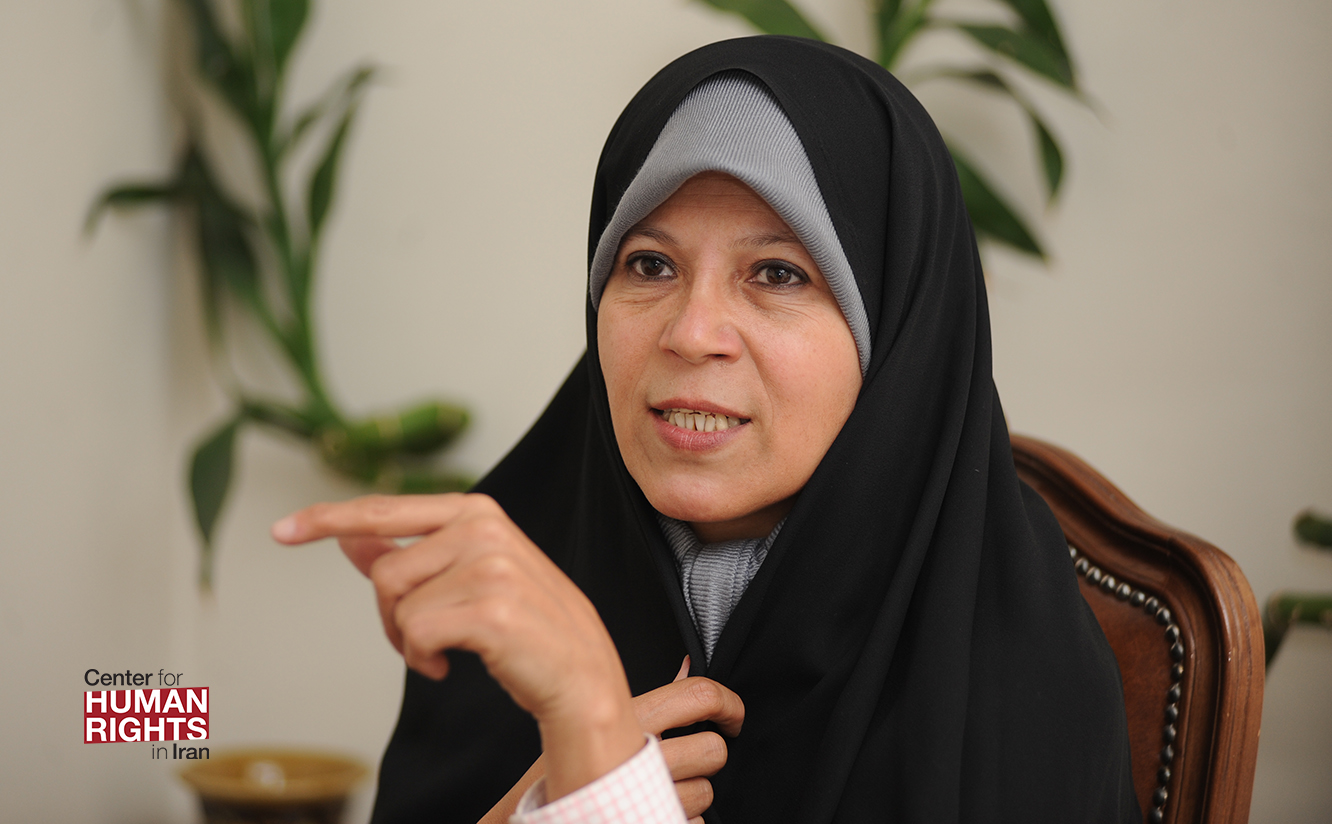Political Activist and Former Reformist MP to be Tried on New and Undeclared Charges

Outspoken political activist and former reformist member of Parliament Faezeh Hashemi will face a new trial in April 2017 on undeclared charges, an informed source told the Center for Human Rights in Iran (CHRI).
Branch 1060 of the Tehran Court for Government Employees had previously sentenced the daughter of late former President Akbar Hashemi Rafsanjani to six months in prison for “spreading falsehoods,” “disturbing public opinion” and “propaganda against the state,” the reformist Kalame website reported on March 17.
Now, Branch 15 of the Tehran Revolutionary Court will convene on April 16 for Hashemi’s trial on charges brought against her by the Islamic Revolutionary Guard Corps (IRGC) and Tehran Prosecutor Abbas Jafari Dowlatabadi. Those charges have not been made public, according to CHRI’s source.
The source added that Hashemi was not able to be present at her trial held at Branch 1060 of the Tehran Court for Government Employees.
“Ms. Hashemi was summoned to the court exactly five days after the passing of her father, Mr. Hashemi Rafsanjani (on January 8, 2017), and was not mentally prepared to study the case file,” said the source. “She asked Branch 1060’s presiding Judge Farshid Dehghani to postpone the trial, but he refused.”
“An important objection to her case in Branch 1060 was that, based on the legal definition of political crimes approved by Parliament, she had to be tried in a court in the presence of a jury,” the source told CHRI. “But this didn’t happen.”
“In fact, the assistant prosecutor Ms. (Zahra) Fattahi acted as judge and jury in the trial, which is absolutely against the law,” added the source.
“There were other problems as well,” continued the source. “Neither Ms. Hashemi nor her lawyer were ever told what she had specifically done wrong. Instead, the IRGC had wiretapped her classes (she taught on politics) and produced a CD of her lectures and accused her of slinging mud at the state. However, during the trial, the CD was not shared with the defense because it would have blown the IRGC’s cover.”
On November 16, 2016, the judiciary’s official news agency, Mizan, accused Hashemi of “slandering the judiciary” in an interview with the Dorr online TV channel in which she repeated previously posed questions about state funds deposited into Judiciary Chief Sadegh Larijani’s personal accounts.
The interview was posted on YouTube on November 19.
Hashemi served in Parliament from 1996 to 2000 as a reformist representative from Tehran, and published Zan, the first newspaper for Iranian women, in 1998 until it was banned a year later.
She was imprisoned for six months between September 2012 and March 2013 for “propaganda against the state” and barred from political and media activities for five years because of her support for the peaceful protests against the disputed result of Iran’s 2009 presidential election.
In March 2016 a high-ranking member of the judiciary vowed to punish Hashemi for meeting with a leader of Iran’s persecuted Bah’ai community and civil rights activists.
